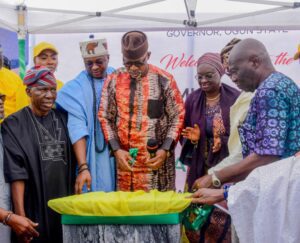
FG spends N14.6bn on NG-CARES in six Northern States – Official
National Coordinator, Nigeria COVID-19 Action Recovery and Economic Stimulus (NG-CARES), Mr Abdulkarim Obaje, says the Federal Government spent N14.6billion in the programme on 160,572 beneficiaries in six northern states.
Speaking in Bauchi on Wednesday at the end of a ministerial town hall meeting, Obaje said the fund was part of the 750 million dollars World Bank loan sourced in 2021 which spans through 2023.
The meeting was organised for beneficiaries of the programme – Bauchi, Gombe, Katsina, Jigawa, Kano and Plateau States.
Obaje said each of the states was allocated $20 million while the FCT and the NG-CARES got $15 million each.
He added that hundreds of thousands of small and medium scale enterprises benefited from the programme to cushion the effect of the COVID-19 pandemic.
He said Bauchi State got N4.2 billion; Gombe State got N3.3 billion, Katsina State got N3.04billion, Kano State got N1.6 billion, Jagawa got N1.4 billion while Plateau got N1.081billion.
In his remarks, Rev. Aso Vakporaye, Chairman, Federal Care Technical Committee of N-G CARES who represented the Minister of State for Budget and Economic Planning, Mr Clem Agba, said the COVID-19 pandemic ravaged many economies.
He added that Federal Government enunciated several policy measures under the Economic Sustainability Plan (ESP) to mitigate the impact of the pandemic on micro and small scale businesses.
The measures, he said, also covered peasant farmers who relied on daily subsistence income to survive.
“In July, the ESP laid out policy measures to mobilise funds and other resources to maintain macroeconomic stability, stimulate oil and non-oil government revenues and reduce non-essential spending.
“The Federal Government accessed a World Bank concessional loan to scale up its programme under the social protection agenda and to respond swiftly and appropriately to the challenges posed by COVID-19.
“The 750 million dollars loan was accessed on behalf of the 36 States and the FCT to stimulate local economy and increase household consumption among the poor and vulnerable,” he stressed.



